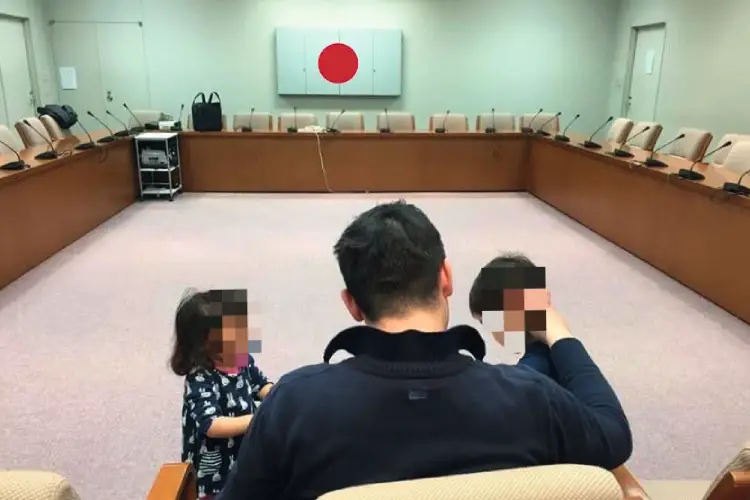
The divorce rate in Japan is exceedingly low, but this does not indicate the country has a healthy attitude towards marriage, explains Robert Jackman. Quite the opposite.
International trade treaties don’t often feature in the family courts. But that didn’t prevent Tommaso Perina from using one to construct a legal argument. Two years ago, the increasingly desperate, exhausted Italian citizen told the European Parliament that Japan’s notoriously strict approach to child custody cases violated the obligations contained in its new ‘strategic partnership’ with the EU – which should be suspended if Japan couldn’t meet its obligations
For all its novelty, Perina’s petition channelled a familiar complaint: that Japan’s long-standing rejection of joint custody – with courts instead routinely awarding sole custody to the parent who happens to be in control of the child at the time of a case – breaches the UN’s Convention on the Rights of the Child (UNCRC) by depriving the child of the chance to know and access both parents.
The divorce rate in Japan is much lower than comparable rich-world nations (around 1.8 divorces per year for every 1,000 adults, compared to 8.9 in the UK). Japan has long been an outlier in family law – and nowhere more so than in child custody.
Whereas Western jurisdictions tend to use equity as a central principle and then deviate from it where justified, Japan favours its ‘continuity principle’, with shared custody regarded as unnecessarily disruptive to a child’s upbringing. More cynical critics link the practice with the historic Japanese belief (long since discarded) that children remain chattels of their household.
The issue of child custody in Japan has most often received international media attention in cases involving foreign-born fathers such as Perina.
Yet local experts, including the Japan-based advocacy group the Parents and Children’s Network, insist the courts take a similarly uncompromising line towards native petitioners – including, in around 20 per cent of cases, mothers. Its reports cite 100 mothers whose official visitation rights are limited to just a few hours a month. Others have to make do with only photographs of their children
Going by the letter of the law, Japan’s legal system doesn’t recognise joint custody at all. Instead, says Tokyo-based lawyer Ayako Ikeda, claimants must rely on the court recognising ‘virtual’ joint custody by giving the parties permission to make arrangements between themselves. Of course, such a situation relies on the parties being willing to discuss such things in the first place.
[Find out why some of the UK’s top family lawyers expect HNW divorce to change]There has been some progress. Ikeda tells Spear’s that judges and court commissioners (who handle the much larger number of divorce cases that are settled by negotiation) are slowly adopting a more flexible stance towards child custody – thanks, in part, to pressure from the campaigning of local advocacy groups.
The issue is drawing support among influential politicians, including a former justice minister. Still, those anticipating wholesale change are likely to be disappointed. Last year a Tokyo court dismissed a case in which it was argued that the continuity principle breached Japan’s constitution and its commitment to gender equality.
The established approach still enjoys some support, and not just among hardcore traditionalists. Ikeda points to a shocking incident in which a child was murdered by their father during a scheduled visitation as stoking nervousness among younger women about the perils of shared custody.
While domestic groups seek to gradually shift attitudes using human stories behind the headlines, international efforts tend to follow the bolder tactics of Perina in openly accusing Japan of breaching international norms.
The US State Department has long alleged that Japanese courts’ willingness to protect parents who unilaterally deny custody rights to foreign spouses violates the Hague Convention on child abduction.
The irony is that diplomatic agreements such as the Hague Convention and UNCRC were intended to facilitate constructive discussions between nation states. That they’re increasingly being cited in cross-border divorce cases (at least where Japan is involved) tells a story of entrenched conflict: one that shows little sign of abating.
[Next: Emily Brand explains how to restore faith in the institution of marriage]





